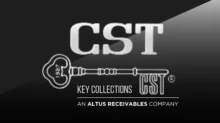Here are a few things you can do after an account is past due to minimize your risk and improve the chances for recovery.
Once an account is past due, every effort should be made to protect the “paper trail”. Ideally, your collection file should include copies of any purchase orders, order acknowledgements, copies of original invoices and statements, proof(s) of delivery (when available), as well as any contracts, credit applications, or any other documents which support and relate to the account. You should also keep and maintain notes and memos of all telephone contacts, along with all correspondence back and forth between the parties. Remember, if you have to file suit to collect, the burden of proof is on you to prove that your customer actually owes the money. Many creditors lose sight of this. Lack of proper documents can be very detrimental to a lawsuit filed for the purpose of collecting money. The most successful creditors will be those who maintain a complete file on the transaction(s) and can show that they have had consistent follow-up with their customers, by phone or in writing. This type of ammunition will go a long way toward exposing belated disputes and other excuses that experienced debtors can employ in an effort to avoid payment.
Promissory Notes and Personal Guaranties:
Let’s say your customer owes $5,000 and honestly tells you they are having cash flow problems. They ask to make payments over a period of weeks or months. If you agree to the proposal, you can suggest that they sign a promissory note* (click here for a sample promissory note) as a show of good faith to demonstrate that they are serious about making the promised payments. Our experience has been that debtors who commit to signing a note with specific payment terms are often more likely to follow through on those payments. The note also establishes the fact that the debtor has agreed to the balance. The open account charges are converted to the note so that if suit is filed to collect, it will be based on the note, rather than on the open account. This takes away many of a debtor’s frivolous defenses. It’s hard for someone to argue that the balance is incorrect when they signed a note on a given date for a certain amount. This can greatly improve your chances of collection, especially if legal action is required. More and more, we find that debtors are refusing to sign such instruments, presumably because they know it affords you a better legal position. This doesn’t mean, however, that you should stop trying to get a signed promissory note. Notes represent a great opportunity to obtain a specific rate of interest on the underlying debt, even if one has not been previously established through a credit application or some other type of contract.
A personal guaranty* (click here for a sample personal guaranty) after the debt is created can also bolster your position and improve chances for recovery. You can take a guaranty from someone in exchange for giving them more time to pay the bill. An individual can personally guarantee the debt of a corporation, LLC or partnership, or they can guarantee the debt of another individual. Many states have specific rules that govern whether or not a guaranty is enforceable. We suggest you check state statutes or consult with a local attorney where the guarantor resides, prior to obtaining the guaranty. As with promissory notes, debtors are reluctant to sign personal guaranties, but this should not deter you from trying to obtain one.
It’s always a good practice to keep copies of checks you receive from your customers – even if you have a credit application which lists your customer’s banking reference. Things change over time. Debtors may begin using a different bank account without notifying you of the change. If suit is necessary, the fastest and easiest way to collect a judgment is by bank garnishment. Having this information may allow us to check on the account before a garnishment is filed. There is no point in doing the garnishment if the account is closed. This saves time and money.
Protect your investment. Refer the debtor back to us when you have placed the account for collection or suit is filed. They may try to contact you to reduce the pressure. In most cases, it’s best if you do NOT talk to them. This gives us more credibility. This is especially important in cases where you have advanced money for suit. Debtors will often contact you after they have been served with suit papers. By this time, you have probably invested more money into the account in the form of court costs and suit fees.
Be wary if your debtor contacts you about an old judgment. Most likely, they want you to release your judgment lien in order to refinance or sell property. It is always best in these cases to contact us, or refer the debtor to us directly. We can use the local attorney who obtained the judgment to determine the facts of the case, and allow you to make an informed decision regarding any settlement offer.
The above is intended to be informational only, and does not constitute legal advice. We suggest you consult with legal counsel if a specific opinion is desired.
*The sample forms we provide (links above) are not state specific. We have had them reviewed by an attorney for content, but they are intended to be an example only. If you have specific requirements, you should seek the advice of a local attorney in the preparation of your forms for each purpose.
